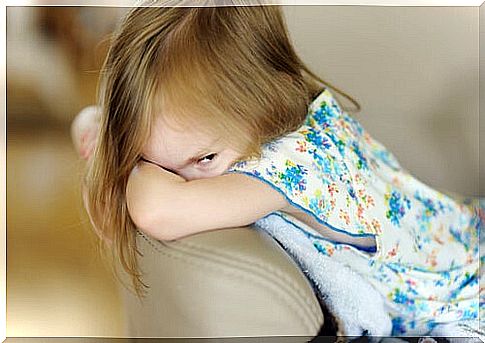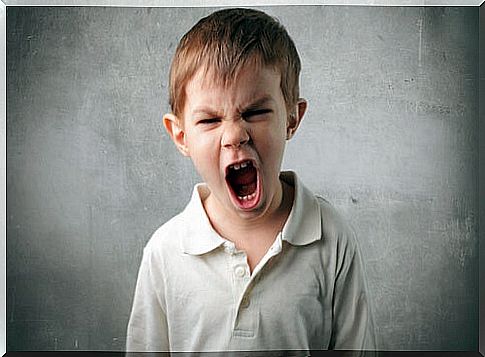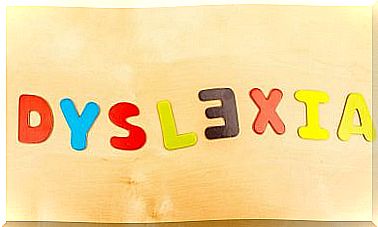Childhood Psychopathy: Symptoms, Causes And Treatment

Childhood psychopathy is a disorder that is worth talking about, since it involves a high degree of destruction, a great load of aggressiveness and a harmful component for society. These characteristics must be tackled early to avoid their devastating consequences.
We believe that it is important to study the adult manifestations of psychopathy but also how to reach them and how they develop. And we live in a society in which there are increasingly higher rates of violence. In addition, the age of initiation in the commission of violent crimes is decreasing.
What are the causes of childhood psychopathy?
The causes of psychopathy are still unknown. At the moment we are talking about explanatory hypotheses or partial theories. These theories only explain a part but are not integrative.

There are biological theories that allude to the role of hormones such as testosterone or to abnormalities in brain structures. On the other hand, learning theories point out the importance of the consequences that a childhood full of abuse can have.
To these theories are added social theories. These point to a social change that has allowed ethical and moral principles to relax. This fact would explain the reason why the psychopathic inclination is encouraged.
The theories that currently have the most relevance are interactive ones. These theories indicate that it is biological and genetic factors that account for the anomalies suffered by psychopaths in terms of their inability to feel empathy or certain emotions.
But in child psychopathy we must also attend to educational factors. Social factors and parental actions influence the form of behavior. The environment of the minor can influence in such a way that he ends up becoming a subject who lives at the limit of legality or a serial killer.
Essential characteristics of the psychopathic personality
The essential characteristics of the psychopathic personality were described by Hare (2003). They are as follows:
- Shallow and simple mind. Psychopaths do nothing but pretend and act. They are great seducers in the initial interpersonal contact.
- Self-centered and presumptuous personality. They are very narcissistic people. They only think about their own well-being and the satisfaction of their needs. They do not follow social norms but only follow their own norms and impulses. The selfishness that any child can present as his own age is disappearing or adjusting to the norms as the child learns or matures them.
However, the child who is developing a psychopathic personality will manifest a persistent egocentricity. In addition, he manifests uncompromising demands in front of others. He stands as an intimidating ringleader before his group of companions. This is going to be accentuated as it grows, obeying, solely, the urgency of gratifying its own interests.
- Lack of remorse or guilt. They do not care about the harm they do to others. They are capable of great destructiveness and unable to repent or feel bad about it. The lack of remorse is related to a remarkable ability to rationalize their behavior. They avoid accepting responsibility for their actions.
- Lack of empathy. All of the above characteristics are related to a lack of empathy. They have no capacity or interest in understanding the emotions of others. They show a general lack of empathy, which makes it difficult or incapable of having authentic emotional ties.
- Manipulative and lying people. Psychopaths are stubborn. Even when they are discovered in a lie, they do not stop, they continue to rearrange their history, creating a complex web of lies and contradictions.

In this sense, psychopaths begin to lie from a young age. Their first victims are usually their parents, siblings, or partners. In a specific situation they may learn to control their anger but in the sustained situation of coexistence they are unable to maintain such control. This makes it possible for parents to detect his strange personality.
Treatment of child psychopathy
As it is a personality disorder, the possibilities for treatment are limited. In the most complicated cases the treatment possibilities will be nil, while in other less serious cases we could achieve a certain “reasonable coexistence”.
In general, you shouldn’t have too high expectations. We are not going to get the young person to become a person of integrity, loyalty or to obtain any of the qualities opposed to psychopathy. We can only control it moderately (Garrido Genovés, 2003).
Two aspects of great importance will be both the environment that surrounds the young person and the moment in which their parents or caregivers realize the disorder they suffer. A detection and the consequent implementation of means and treatments from the age of eight or nine greatly increases the hopes of success.
Recommended reading: The psychopath: a chameleon in today’s society. By Vicente Garrido Genovés. Editorial Algar.









